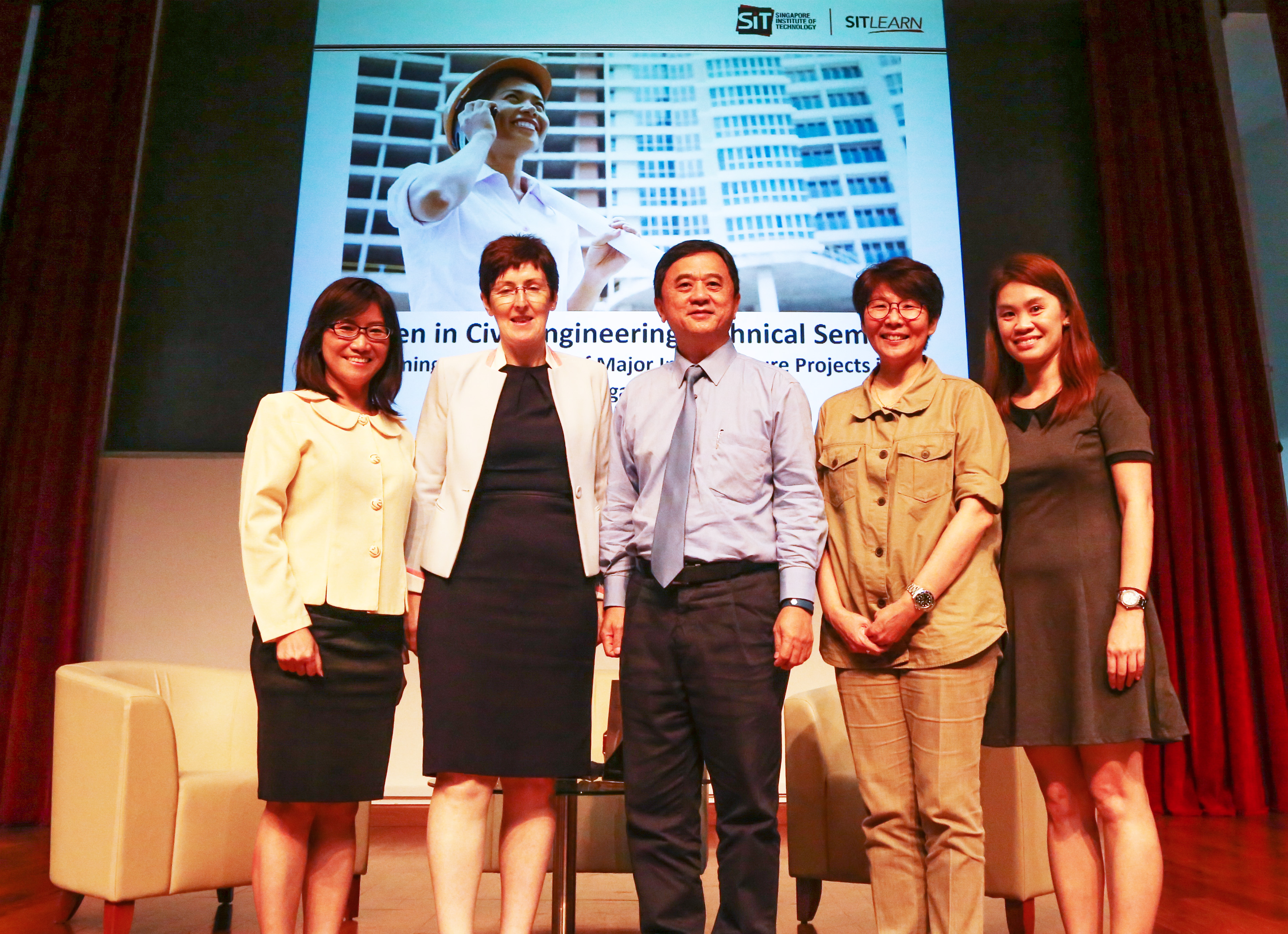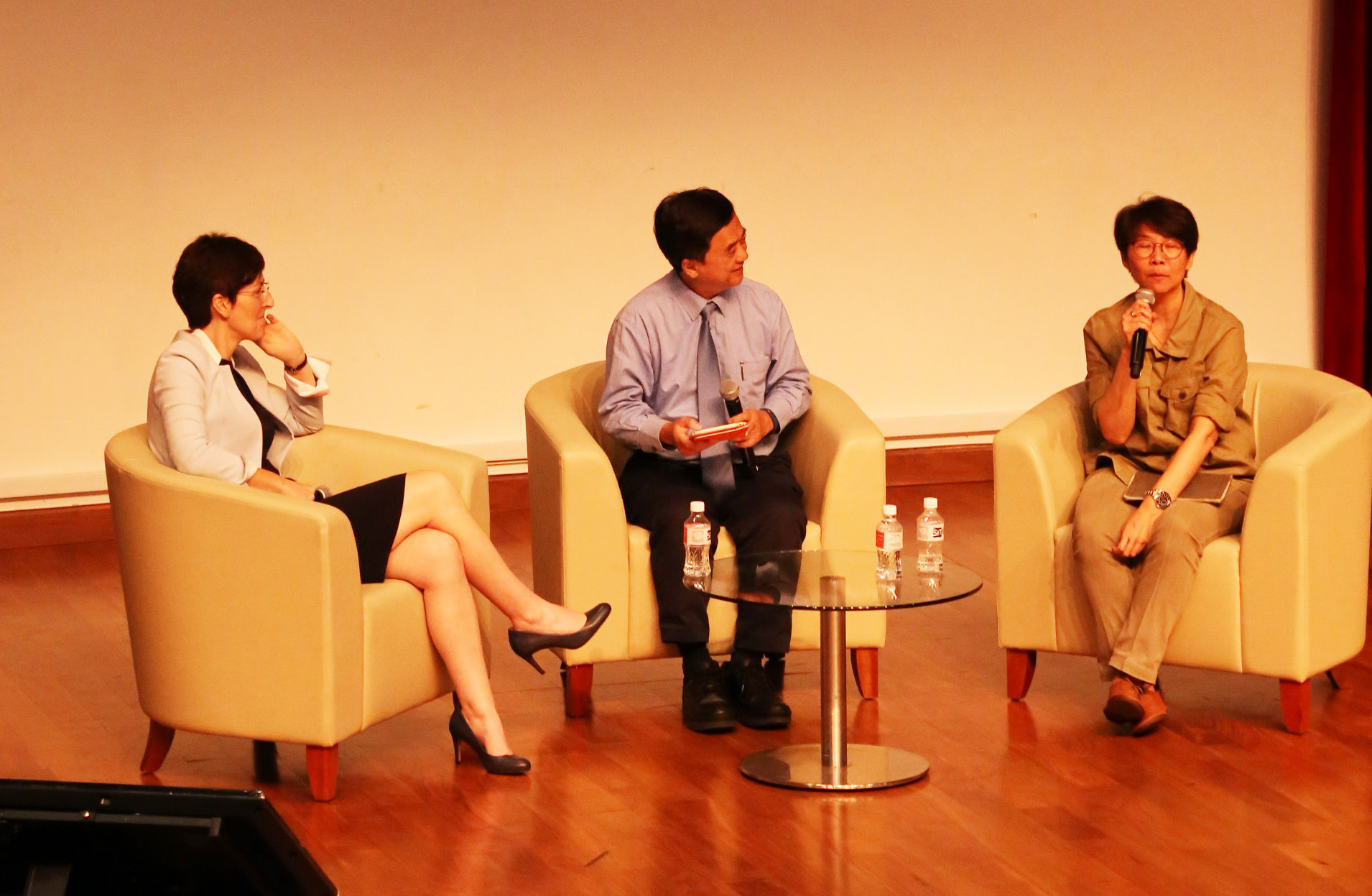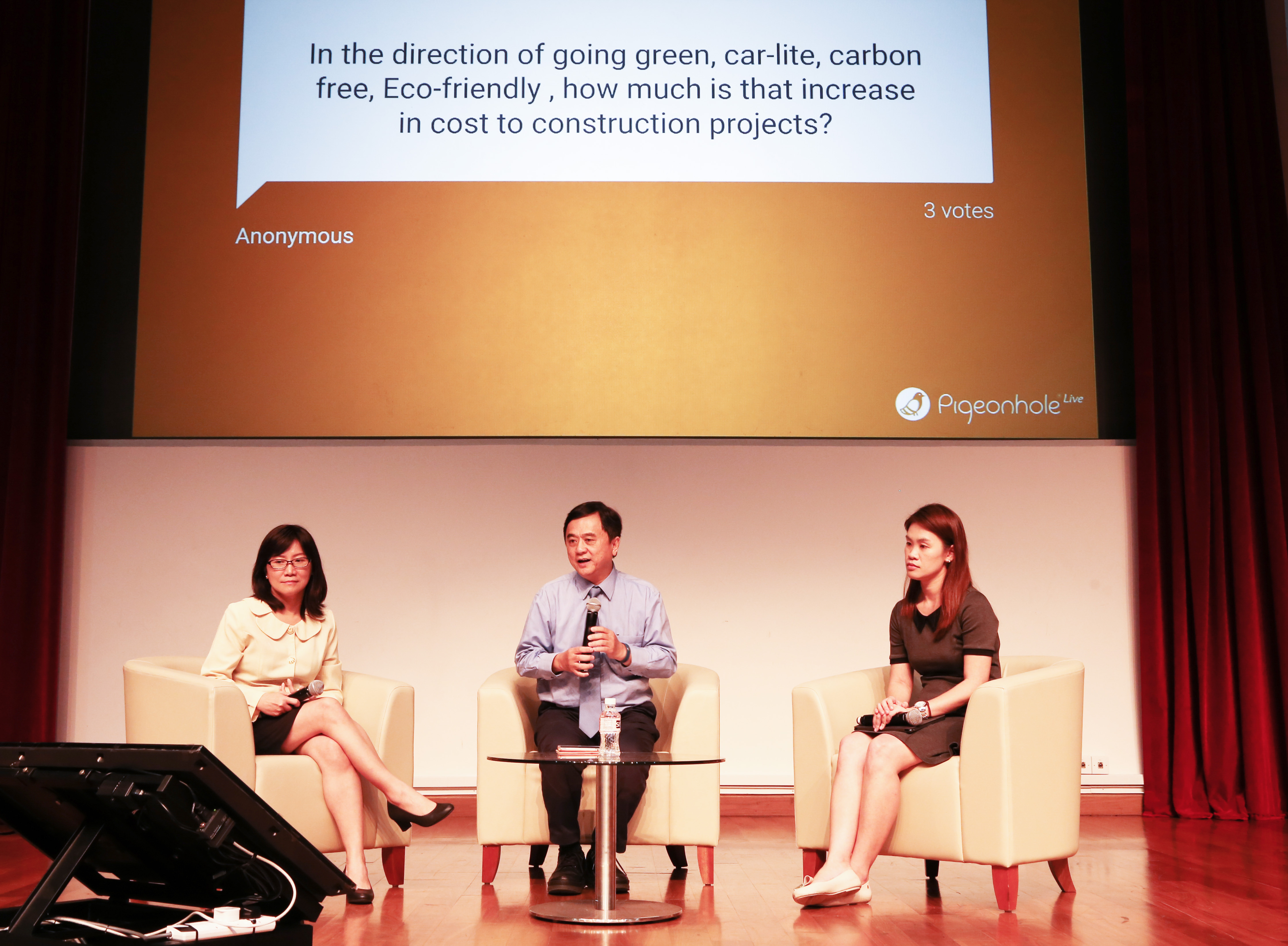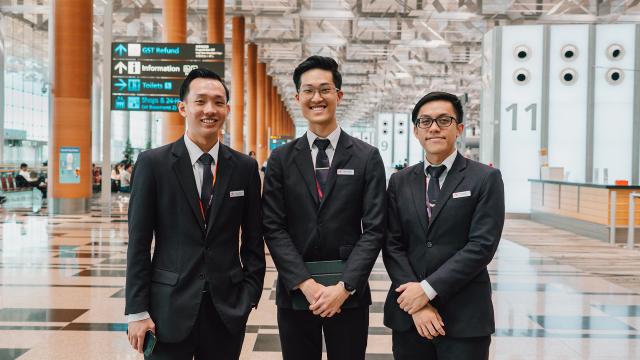Despite a low number of women in engineering as a whole, civil engineering has proven increasingly attractive for the fairer sex. Other than being able to multi-task, women are also better in communication and rarely let their egos get in the way.

(Left to right): Ms Chua Lee Koon, Ms Eileen Kelly, Prof Chiew Sing Ping, Er. Ho Pui Ming and Ms Cherlyn Leong at the ‘Women in Civil Engineering Technical Seminar’ held on 8 March 2018.
In celebration of International Women’s Day on 8 March, four prominent women civil engineers shared their experiences, challenges and takeaways at the ‘Women in Civil Engineering Technical Seminar – Planning and Delivery of Major Infrastructure Projects in Singapore’ held at SIT@Dover. Organised by SITLEARN Professional Development, the seminar was attended by over 450 civil engineering professionals who were treated to insightful perspectives from the rail, road, housing and industrial estates sectors.
The speakers were Ms Eileen Kelly, Vice-President and Director, Rail & Transit Asia Pacific, T.Y.LIN International Group; Er. Ho Pui Ming, Director, Commuter and Road Infrastructure, LTA; Ms Chua Lee Koon, Principal Engineer, Building and Infrastructure Group, HDB; and Ms Cherlyn Leong, Assistant Director, Technical Services Division, JTC.
Engagement with Stakeholders
Ms Eileen Kelly shared her experiences in managing challenges such as planning, technical and communication, to successfully deliver a range of different rail modes from the traditional heavy haul, to mass and light transit systems across Germany and Ireland.
“A major challenge is to get acceptance from various stakeholders on the project that we are working on. To overcome this, we need to understand and work with these challenges, including constant engagement and communication with the stakeholders,” said Ms Kelly.
The second speaker, Er. Ho Pui Ming, echoed this sentiment. As a key member of the North-South Corridor (NSC) project, she remembered having to engage with various stakeholders, including residents, who need to be evicted to make way for the new expressway.
“You need to have patience and endurance, as massive projects like the NSC will take 25 years from start to delivery. I have been scolded by many angry residents in our various dialogue sessions with them. I have learnt to show empathy but remain firm and polite,” reflected Er. Ho.

Prof Chiew Sing Ping (centred), Programme Director, Civil Engineering, SIT was the moderator of the first panel discussion.
Originally conceived as a 21.5 km expressway to connect towns in the North to the city centre, the NSC has been redesigned as Singapore’s first integrated transport corridor featuring continuous bus lanes and cycling trunk routes, and is expected to be completed around 2026.
Serving People with Passion
“As civil engineers, we also have to be adaptable to changes and technological advances. With the shift to active mobility in 2016, we had to change the design of the expressway to include cycling tracks and perhaps even driverless vehicles in the future. We have to constantly learn new skills, such as design thinking to make our design more user-centric. But ultimately, the most important trait of an engineer is to serve people with passion,” said Er. Ho.
For Ms Chua Lee Koon, her passion in Physics and Math, coupled with the satisfaction of turning design into reality prompted her to go into civil engineering. Her current role as Principal Engineer of Housing and Development Board (HDB) is a childhood dream came true. She has been involved in many building and reclamation projects, including the award-winning Punggol Waterway.
“There are many technical challenges in this project, including massive earthwork to be done, as well as improving the soil condition. The best way to overcome these challenges is to be confident, have a positive mindset and think creatively for solutions,” commented Ms Chua.
The last speaker, Ms Cherlyn Leong, shared how JTC adopts new design approaches and incorporates innovative infrastructures to develop integrated mixed-use estates with unique selling points. She cited the CleanTech Park, Jurong Innovative District and the upcoming Punggol Digital District as examples of estates with distinct characteristics. For example, the Punggol Digital District will see JTC’s Business Parks co-located with the Singapore Institute of Technology’s future campus, with public spaces and links to promote interaction and cultivation across the community, industry and university.
“Using innovative infrastructure and technology, we hope to implement new design approaches to develop sustainable, connected and collaborative estates for our next generation,” said Ms Leong.

Interesting questions related to civil engineering and sustainability were posted to the two panellists – Ms Chua Lee Koon and Ms Cherlyn Leong.
A Meaningful Career Option
Indeed, civil engineering is becoming increasingly attractive to women, as more women see it as a meaningful career option that can make a difference in the community. The Civil Engineering degree programme, jointly offered by SIT and University of Glasgow, has more than half of its student population being female.
One student, Natalie Tan, 24, said that even though civil engineering is often perceived as a dirty job, she is attracted by how buildings are constructed from scratch. Currently a project manager at construction firm NU Systems, she is back in university under the SkillsFuture Work-Study Degree Programme, where she is sponsored by her company to attend classes at SIT on a 4-day work/1-day study arrangement.
“It has been a struggle for me, especially in my first trimester, as I need to cope with both work and study. However, I find it a very fulfilling and rewarding career option, and the industry certainly is in demand for female engineers,” commented Natalie.
As our society progresses, we look forward to welcoming more female practitioners into SIT so as to boost the ranks of civil engineers in Singapore.
![[FA] SIT One SITizen Alumni Initiative_Web banner_1244px x 688px.jpg](/sites/default/files/2024-12/%5BFA%5D%20%20SIT%20One%20SITizen%20Alumni%20Initiative_Web%20banner_1244px%20x%20688px.jpg)


